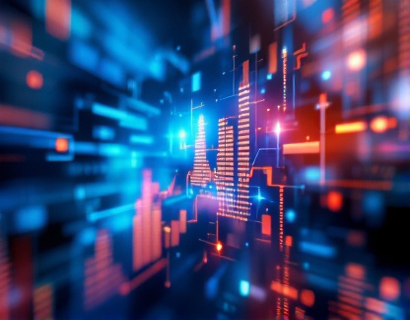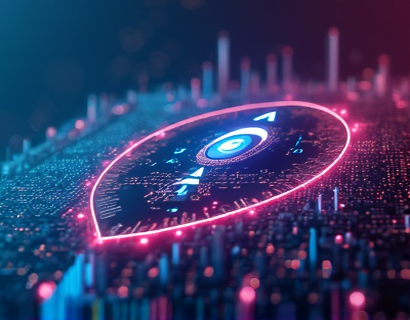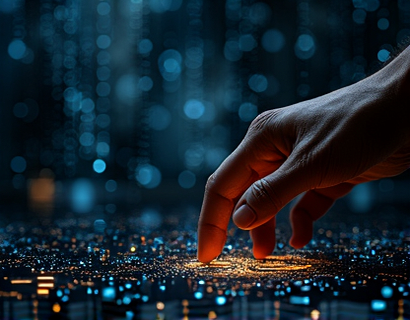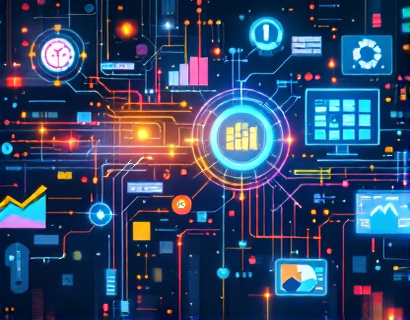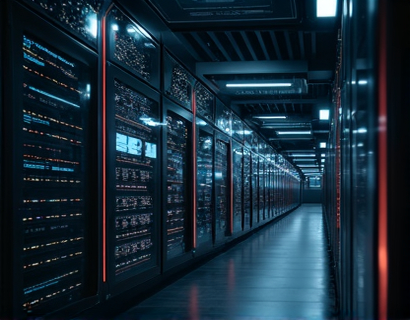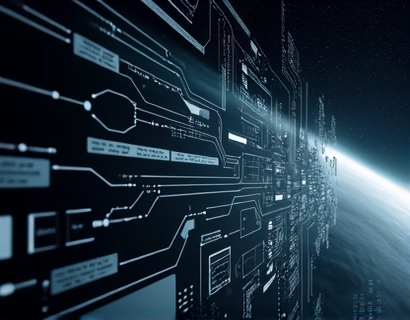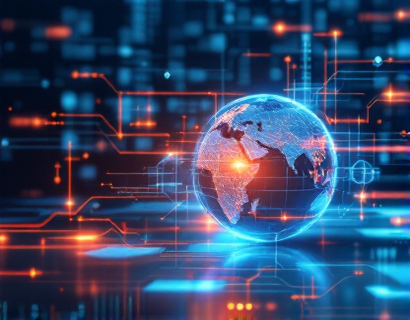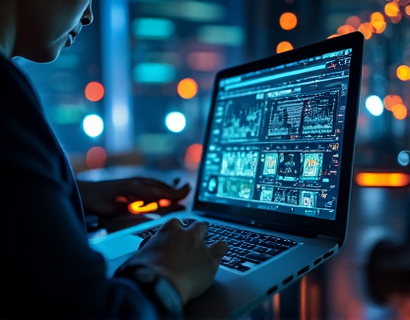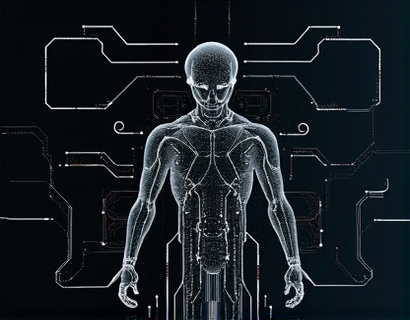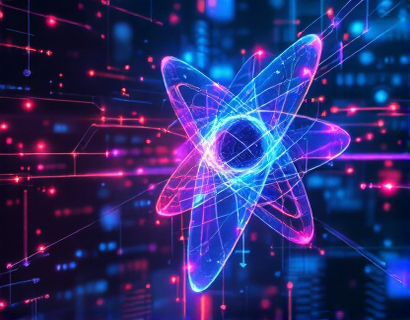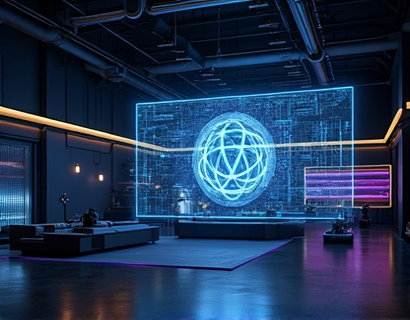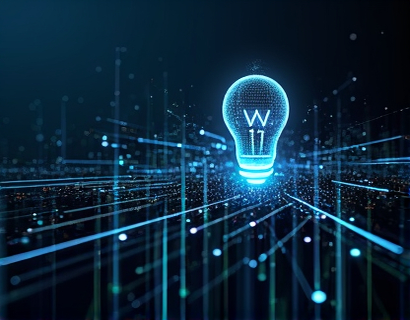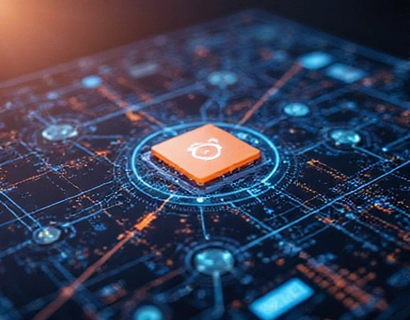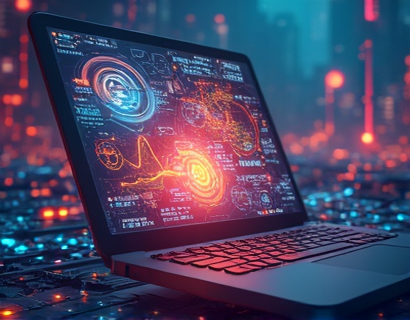Decentralized AI: Transforming Ucosystem Applications with Crypto Innovation
The integration of cryptocurrency and artificial intelligence (AI) is ushering in a new era of decentralized applications and services. This transformative combination is redefining how we approach digital workflows, enhancing productivity, and simplifying daily tasks. As we explore the intersection of these technologies, it becomes evident that the future of decentralized applications is not just promising but already underway, offering a glimpse into a more efficient and user-centric digital landscape.
Decentralized applications, often referred to as dApps, operate on blockchain technology, which ensures transparency, security, and decentralization. When AI is integrated into these dApps, the potential for innovation and efficiency becomes immense. AI's ability to process vast amounts of data, learn from patterns, and make decisions autonomously complements the decentralized nature of blockchain, creating a synergy that can revolutionize various sectors.
Enhancing Productivity with Decentralized AI
One of the primary benefits of integrating AI into decentralized applications is the significant boost in productivity. Traditional centralized systems often suffer from bottlenecks and inefficiencies due to their reliance on central servers. In contrast, decentralized AI applications distribute computational tasks across a network of nodes, reducing latency and increasing processing speed. This distributed approach ensures that tasks are handled more efficiently, allowing users to complete work faster and with greater accuracy.
For instance, in the realm of content creation, decentralized AI tools can automate the editing and optimization process. These tools analyze vast amounts of data to suggest improvements in writing style, grammar, and even visual elements. By leveraging AI, content creators can focus more on the creative aspects while the AI handles the mundane tasks, thereby enhancing overall productivity.
Simplifying Daily Tasks through AI and Crypto
The daily tasks that once required manual intervention and significant time investment are being streamlined through decentralized AI applications. From managing schedules to automating financial transactions, these tools are making our lives easier. For example, decentralized finance (DeFi) platforms use AI to provide personalized financial advice, automate trading, and manage assets with minimal human intervention. This not only saves time but also reduces the risk of human error.
Another area where AI and crypto are making a significant impact is in the management of digital identities. Decentralized identity solutions use AI to verify and manage user identities securely and efficiently. This reduces the need for multiple passwords and enhances privacy, as users have control over their personal data. The combination of AI for data analysis and blockchain for secure storage ensures that digital identities are both robust and user-friendly.
Innovative Use Cases of Decentralized AI
The potential use cases for decentralized AI are vast and varied. In the healthcare sector, AI-powered dApps can analyze medical data from multiple sources to provide diagnostic insights and treatment recommendations. These applications can operate independently of central authorities, ensuring that sensitive patient data remains secure and private. The decentralized nature of these applications also allows for real-time updates and collaborative research, accelerating medical advancements.
In the supply chain industry, decentralized AI can enhance transparency and efficiency. By tracking products from production to delivery using blockchain, companies can ensure authenticity and reduce fraud. AI algorithms can analyze this data to optimize logistics, predict demand, and manage inventory more effectively. This not only reduces costs but also ensures a smoother and more reliable supply chain.
Security and Trust in Decentralized AI
One of the most significant advantages of decentralized AI applications is the enhanced security and trust they provide. Centralized systems are often targets for cyberattacks, as they represent a single point of failure. Decentralized applications, on the other hand, distribute data and computational tasks across a network, making them more resilient to attacks. The immutable nature of blockchain ensures that once data is recorded, it cannot be altered, providing a high level of trust and integrity.
AI algorithms can also be designed to detect and prevent malicious activities in real-time. For example, in cybersecurity, decentralized AI can monitor network traffic and identify anomalies that indicate a potential threat. By leveraging the collective power of the network, these systems can respond quickly and effectively, minimizing the impact of security breaches.
Challenges and Considerations
Despite the numerous benefits, the integration of AI and cryptocurrency in decentralized applications is not without challenges. One of the primary concerns is the scalability of blockchain networks. Current blockchain technologies often struggle to handle high volumes of transactions, which can limit the performance of decentralized AI applications. However, ongoing developments in blockchain scalability solutions, such as layer 2 protocols and sharding, are addressing these issues.
Another consideration is the regulatory landscape. As decentralized applications gain traction, governments and regulatory bodies are beginning to take notice. Ensuring compliance with existing laws while advocating for favorable regulations is crucial for the widespread adoption of these technologies. Education and transparency play key roles in this process, helping stakeholders understand the benefits and risks associated with decentralized AI.
The Future of Decentralized AI
The future of decentralized AI is bright, with continuous advancements promising to further enhance its capabilities. As AI algorithms become more sophisticated and blockchain technology more efficient, the potential applications will expand even further. We can expect to see more seamless integration of AI into various aspects of daily life, from smart homes to autonomous vehicles.
The collaboration between AI and cryptocurrency is not just a technological trend but a fundamental shift in how we approach digital interactions. By leveraging the strengths of both technologies, we can create a more decentralized, secure, and efficient digital world. The journey ahead is exciting, and those who embrace these innovations will be at the forefront of shaping the future.




